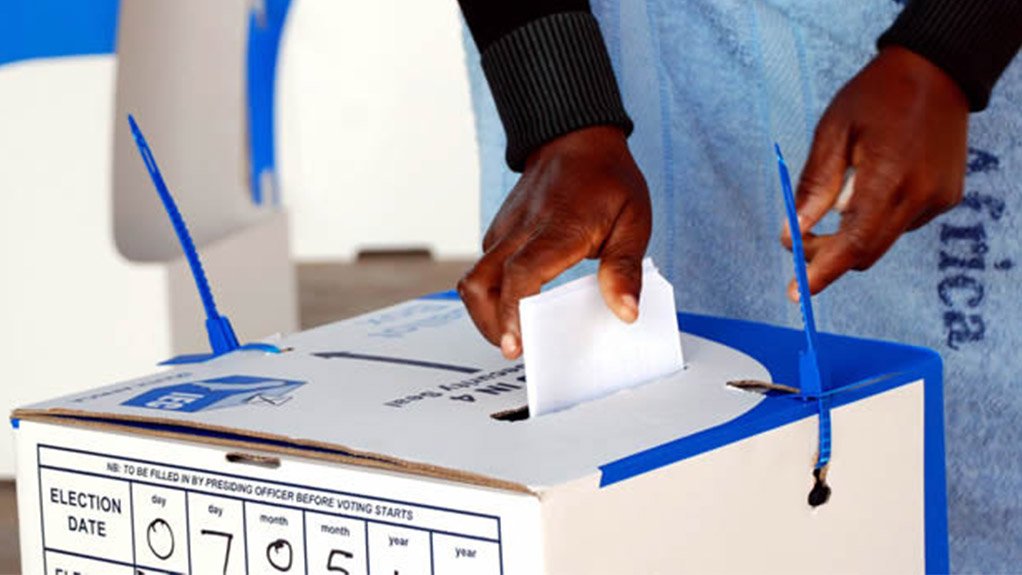The Constitutional Court is expected to hand down judgment on the Electoral Laws Amendment Bill which could have a critical impact on next year’s elections and open up the country's political space – a first in democratic South Africa.
On Monday, the apex court will rule on the much-anticipated case in which the Independent Candidates Association's (ICA) application for the Electoral Amendment Act to be ruled unconstitutional, irrational and "inconsistent with the rule of law" because of the restriction placed on independents to contest National Assembly seats.
In August, the ConCourt heard arguments between the ICA and the Independent Electoral Commission about the matter which has been a contentious issue since 2020.
Dr Michael Louis, ICA chairperson, said the ConCourt would deliver a seminal judgment.
"This judgment will be very important to open up the political landscape. We are expecting a favourable judgment. If it does not go our way, I think it will bring about a crisis. I don’t see how independent candidates would be able to stand when they need to get double the votes or signatures to make themselves eligible," he said.
Furthermore, Louis said: "There are many people of high standing that want to help the country but don't necessarily want to be part of a political party."
During deliberations on the act, there was much talk about the signatures required for an independent candidate.
The act requires independent candidates to submit to the Electoral Commission of South Africa (IEC) a declaration with names, identity numbers, and signatures of voters who support their candidature.
To be elected to the National Assembly, the names must equal 15% of the number of votes required to obtain a seat for that region in the preceding election, if contesting only one region.
If you intend contesting more than one region, you need to get signatures amounting to 15% of the province with the highest quota in the preceding election.
For instance, if a candidate wants to compete in Gauteng and the Northern Cape, they will need to get the Gauteng figure of 13 890, instead of the Northern Cape's 10 271.
Lawson Naidoo, executive director of the Council for the Advancement of the SA Constitution (Casac), said the model proposed in the current bill won’t work.
"There are difficulties with the legislation. My sense is that they will look at the issue of the signature requirements for independent candidates and may well reduce the number that is required as set out in the act. Other considerations are that the elections are mere months away and the IEC needs time to get the internal systems in order," he said.
"There are a number of options on the table. We can utilise a system very similar to what we use at the local government level. But I think it will be for the electoral reform panel to come up with the details of that."
The Independent Candidates Association has been more direct about its demands.
In court, it argued that it wants the allocated seats for independents increased from 200 to 350, with the remaining seats being "compensatory seats", or seats shared proportionally among political parties according to the number of votes received.
Home Affairs Minister Aaron Motsoaledi asserted, in his answering affidavit in the case, that independents being granted more seats "would distort" the proportional share of political parties, saying South Africa used a proportional representation system that supported multiple parties in its legislatures and councils.
In June 2020, the Constitutional Court instructed Parliament to amend the Electoral Act to allow people not belonging to parties to be elected to the National Assembly and provincial legislatures.
The New Nation Movement (NNM) was the main applicant in the original Constitutional Court ruling, which necessitated the amendment.
Co-founder and executive director of the NNM, Bulelani Mkholishwa, said a favourable ruling will protect the new entrants to the political system.
"We were fighting these draconian laws for independent candidates. But we claim each small win. One of the complexities is that the Constitutional Court does not want to go beyond its scope. The political parties in Parliament did not have to go through the same stringent processes we as independents now have to go through," he said.
EMAIL THIS ARTICLE SAVE THIS ARTICLE
To subscribe email subscriptions@creamermedia.co.za or click here
To advertise email advertising@creamermedia.co.za or click here











